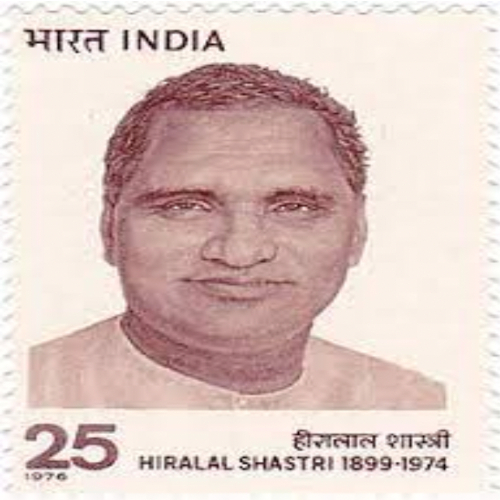Early Life
Hiralal Shastri was born on 24 November 1899 in Jobner town, Jaipur district, Rajasthan. He completed his Bachelor of Arts at Maharaja College, Jaipur. He subsequently joined the Jaipur State Service and rose to the rank of Secretary in the Home and Foreign Departments. In 1927, Shastri left the Services to pursue a more active role in the field of social welfare. In 1929, he founded an organization called ‘Jeevan Kutir’ and trained a band of dedicated social workers, and endeavoured to implement a programme for rural reconstruction. He was also the founder of Banasthali Vidyapith which continues to serve as a premier national institution for women’s education even today.
Role in India’s Independence Movement
Shastri was the President of the Praja Mandal, a freedom movement in the 1920s that was being led by the people residing in princely states against their rulers and the British Government. In 1939, Shastri was imprisoned for six months due to his participation in Praja Mandal’s Satyagraha movement to achieve civil liberties.
Contribution to Constitution Making
A member of the Indian National Congress, Shastri was representative of the princely state of Rajasthan in the Constituent Assembly. In the Assembly, he discussed the integration of different states into the Union of India and the need for all representatives to have an equal say in the Constitution-making process.
Later Contributions
After Rajasthan was established as a State on 30 March 1949, Hiralal Shastri became its first Chief Minister. He subsequently resigned from the post in 1951 but returned to active politics in 1957 and was elected to be a member of the second Lok Sabha from Sawai Madhopur constituency in Rajasthan.
He passed away on 28 December 1974.
- In his speech about the integration of states into the Indian Union, Shastri was of the opinion that while larger States should be allowed to enter the Union as separate entities, the smaller states should only be allowed to enter the Union in groups. He claimed that if separate units were made of the smaller states, it would solely be for the purpose of elections and serve no functional purpose.
- In another intervention concerning the members of the Constituent Assembly, Shastri acknowledged that some of the members in the Assembly were not directly elected by the people and were instead present due to nomination or by the virtue of them being rulers of their states. He went on to state that despite this, all the members of the Constituent Assembly were members by right and therefore, there could be no reasonable basis to disallow them from exercising an equal say in the Constitution-making process.

